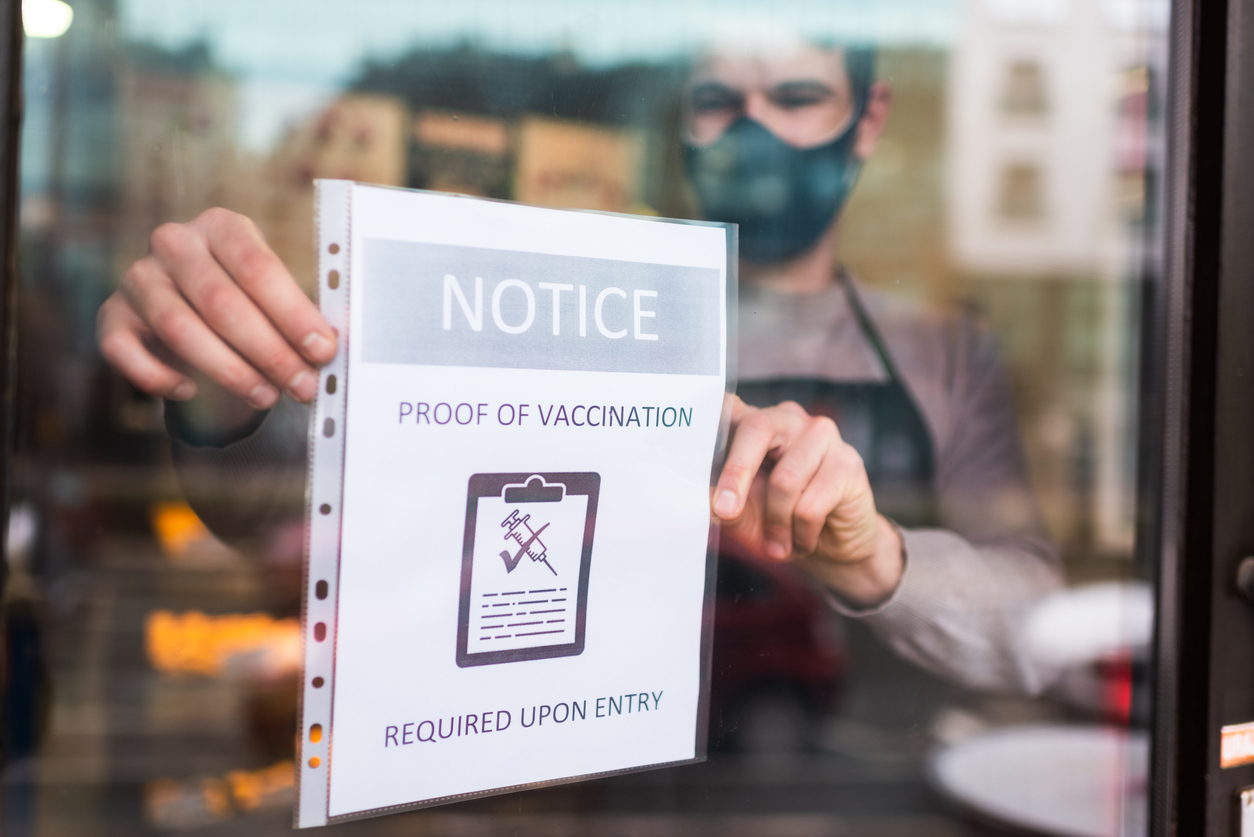70 percent of Americans say it's time to accept COVID and 'get on with our lives'


A free daily email with the biggest news stories of the day – and the best features from TheWeek.com
You are now subscribed
Your newsletter sign-up was successful
Seventy percent of Americans now agree with the statement "It's time we accept that COVID is here to stay and we just need to get on with our lives," a new Monmouth University poll found.
Of those who report having had COVID-19, 78 percent agreed with the statement, while 65 percent who say they never got the virus also agree.
Among Republicans, 89 percent say it's time to move on, compared to 71 percent of independents and 47 percent of Democrats.
The Week
Escape your echo chamber. Get the facts behind the news, plus analysis from multiple perspectives.

Sign up for The Week's Free Newsletters
From our morning news briefing to a weekly Good News Newsletter, get the best of The Week delivered directly to your inbox.
From our morning news briefing to a weekly Good News Newsletter, get the best of The Week delivered directly to your inbox.
Despite this readiness to move past COVID, however, people remain concerned about the virus.
Sixty-two percent of Americans said they were concerned about someone in their family becoming seriously ill from COVID, and a slim majority supported "instituting, or reinstituting, face mask and social distancing guidelines in your state at the current time."
According to Patrick Murray, the director of Monmouth's Polling Institute, "Americans' worries about COVID haven't gone away. It seems more to be a realization that we are not going to get this virus under control in a way that we thought was possible just last year."
Monmouth also suggested that "faith in the ability of President Joe Biden and the federal government to get a handle on the pandemic continues to fade."
A free daily email with the biggest news stories of the day – and the best features from TheWeek.com
Only 43 percent of Americans said Biden has done a good job handling COVID, the first time his approval rating on this issue has dropped below 50 percent since he took office.
Expectations for the future are also low. Those who expect COVID to continue disrupting life into 2023 or to continue to do so forever comprise 60 percent of respondents, while only 34 percent believe things will be back to normal by the end of 2022.
The poll was conducted from Jan. 20 to 24, surveyed 794 adults, and has an error margin of 3.5 percent.
Grayson Quay was the weekend editor at TheWeek.com. His writing has also been published in National Review, the Pittsburgh Post-Gazette, Modern Age, The American Conservative, The Spectator World, and other outlets. Grayson earned his M.A. from Georgetown University in 2019.
-
 Why are election experts taking Trump’s midterm threats seriously?
Why are election experts taking Trump’s midterm threats seriously?IN THE SPOTLIGHT As the president muses about polling place deployments and a centralized electoral system aimed at one-party control, lawmakers are taking this administration at its word
-
 ‘Restaurateurs have become millionaires’
‘Restaurateurs have become millionaires’Instant Opinion Opinion, comment and editorials of the day
-
 Earth is rapidly approaching a ‘hothouse’ trajectory of warming
Earth is rapidly approaching a ‘hothouse’ trajectory of warmingThe explainer It may become impossible to fix
-
 A Nipah virus outbreak in India has brought back Covid-era surveillance
A Nipah virus outbreak in India has brought back Covid-era surveillanceUnder the radar The disease can spread through animals and humans
-
 Trump HHS slashes advised child vaccinations
Trump HHS slashes advised child vaccinationsSpeed Read In a widely condemned move, the CDC will now recommend that children get vaccinated against 11 communicable diseases, not 17
-
 Covid-19 mRNA vaccines could help fight cancer
Covid-19 mRNA vaccines could help fight cancerUnder the radar They boost the immune system
-
 FDA OKs generic abortion pill, riling the right
FDA OKs generic abortion pill, riling the rightSpeed Read The drug in question is a generic version of mifepristone, used to carry out two-thirds of US abortions
-
 The new Stratus Covid strain – and why it’s on the rise
The new Stratus Covid strain – and why it’s on the riseThe Explainer ‘No evidence’ new variant is more dangerous or that vaccines won’t work against it, say UK health experts
-
 RFK Jr. vaccine panel advises restricting MMRV shot
RFK Jr. vaccine panel advises restricting MMRV shotSpeed Read The committee voted to restrict access to a childhood vaccine against chickenpox
-
 Texas declares end to measles outbreak
Texas declares end to measles outbreakSpeed Read The vaccine-preventable disease is still spreading in neighboring states, Mexico and Canada
-
 RFK Jr. shuts down mRNA vaccine funding at agency
RFK Jr. shuts down mRNA vaccine funding at agencySpeed Read The decision canceled or modified 22 projects, primarily for work on vaccines and therapeutics for respiratory viruses
